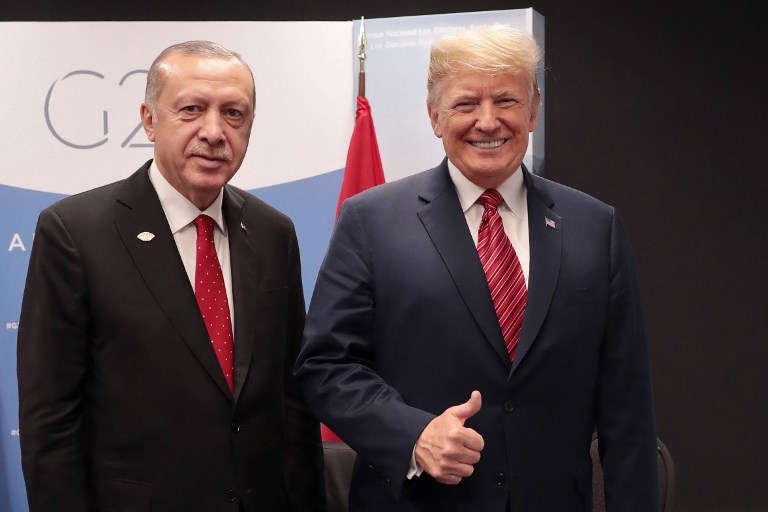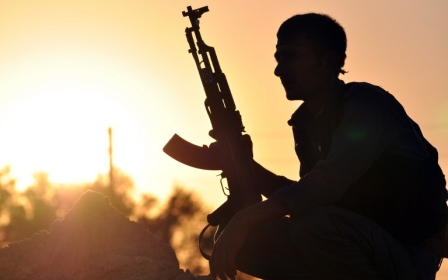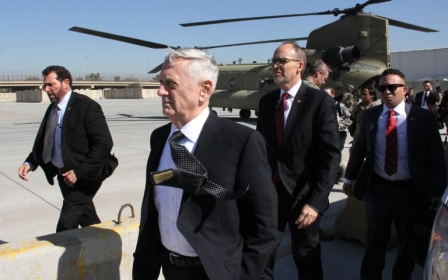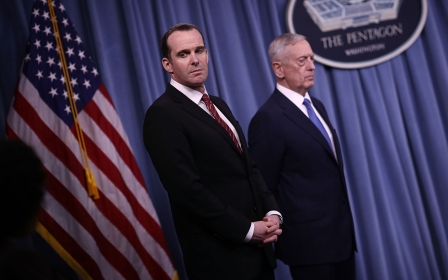Trump says he discussed 'highly coordinated' Syria pullout with Erdogan
French President Emmanuel Macron says, "I deeply regret the decision" by Trump to pull troops from Syria

Turkey's President Recep Tayyip Erdogan, left, with US President Donald Trump at G20 summit in Buenos Aires, Argentina, on 1 December (AFP)
Published date: Lundi 24 décembre 2018 - 16:49
|
Last update: 5 années 11 mois ago
Middle East Eye propose une couverture et une analyse indépendantes et incomparables du Moyen-Orient, de l’Afrique du Nord et d’autres régions du monde. Pour en savoir plus sur la reprise de ce contenu et les frais qui s’appliquent, veuillez remplir ce formulaire [en anglais]. Pour en savoir plus sur MEE, cliquez ici [en anglais].




